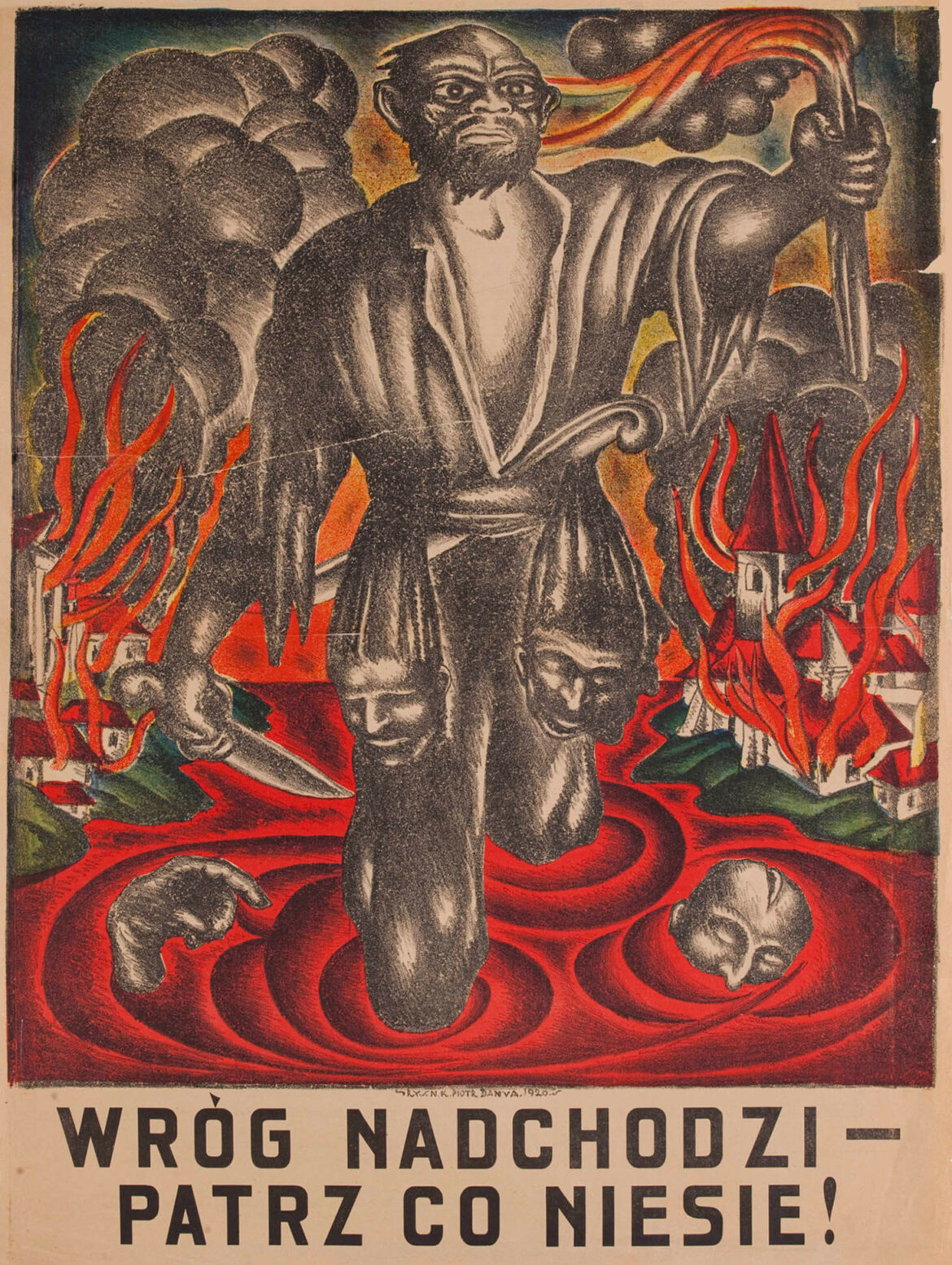In the face of Bolshevik Russian aggression, threatening Poland’s independence regained in 1918, Polish artists became widely participated in promoting the fight against the enemy to the public. They created recruitment posters and posters urging financial support for military action; they also grabbed pens and sabres. The threat of communism in 1920 mobilised all layers of society, including painters, writers, poets and filmmakers.
The authors of posters depicted a clash between civilisation, good and evil, Polishness and Bolshevik terror. They pointed out the lack of respect for the elementary principles of civilisation, which the invaders wanted to annihilate. The posters displayed alarming slogans: “To arms! Your Homeland calls you!” or “To us every threshold will be a fortress”. The posters were designed by eminent artists, including Władysław Skoczylas, Edmund Bartłomiejczyk and Felicjan Szczęsny Kowarski.
Many well-known literary personalities responded to the call of the Mobilisation Commission in 1920. Among those who rushed to the front were Józef Czechowicz, Józef Czapski, Julian Przyboś, Stanisław and Józef Mackiewicz, and Władysław Broniewski. Others grabbed their pens to call for the defence of their homeland. Among others, the poet of Jewish origin Bolesław Leśmian found a job in the Central Propaganda Committee. Engaged poetry was written not only by established talents such as Jan Kasprowicz, but also by unknown amateur poets. Writers Karol Irzykowski and Adam Grzymała-Siedlecki as war correspondents reported on the activities at the front. After the war, memoir accounts were published in large numbers, and the war with Soviet Russia became an important experience for Polish literature.
Polish cinema also joined the struggle with movies producing anti-Bolshevik films, including For You, Poland (dir. A. Bednarczyk), which wove a patriotic message into the love story of two young people put to the test by the Bolshevik invasion. The 1921 film Miracle on the Vistula with Jadwiga Smosarska in the lead role was directed by Ryszard Bolesławski, later a Hollywood star.





